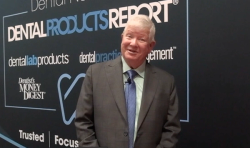- About Us
- Advertise
- Editorial
- Contact Us
- Terms and Conditions
- Privacy Policy
- Do Not Sell My Personal Information
© 2025 MJH Life Sciences™ and Dental Products Report. All rights reserved.
From Barber Surgeons to Specialists
When we see the white, blue and red stripes of a barber pole, we often think of the old-fashioned barbershop where gentlemen could go get a clean shave or a haircut. The idea of going to the barber to get a tooth pulled or get surgery probably wouldn’t cross one’s mind.
However, well into the 1800’s, those white, blue and red stripes did not represent this classical thought of a barbershop. The white stripes were symbolic for bandages, blue for venous blood and red for arterial blood. These barber poles were symbols of “barber surgeons.”
Barber surgeons were not only responsible for grooming their clients, but for providing dental care and surgical treatment. The barbers would perform tooth extractions, blood letting and wound surgery.
In today’s world, can one imagine going to the hair salon to get a tooth extracted? Or trusting their health to someone who has not received a degree that certifies them to work in the field of dental medicine? Today, we are thankful that dentist and surgeons spend years to receive proper training and education, so that they are specialists in their field and can provide proper treatment for patients.
There are many benefits to specialized dentistry. It makes the practitioner more qualified to handle treatment and allows for the best patient care. In addition, it increases the long-term success of dental treatment, which in turn increases patient satisfaction. Patients can feel more comfortable and relaxed when sitting in the dental chair, knowing that a reputable and experienced dentist is treating them while providing the highest quality care.
Specializing allows practitioners to offer comprehensive preventative and therapeutic treatment for each individual patient’s needs. Because of constant growing technologies and development of knowledge, additional training is necessary to provide the highest quality of treatments to satisfy patient’s oral health needs.
Practitioners may also find specialization more satisfying because it allows them to do what they love most, and lets them battle the specific aspects of oral health that they are the most passionate about.
Even though those candy cane stripes of the barber pole no longer represent the versatile functions of the “barber surgeon,” we have to remember its role in the history of dentistry. We also have to be grateful that barbers now decide to reserve their scissors and razors for fashionable cuts instead of surgical ones.
Check out this SNL skit on barber surgeons: http://bit.ly/barbersurgeon



